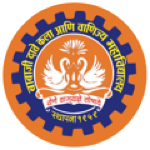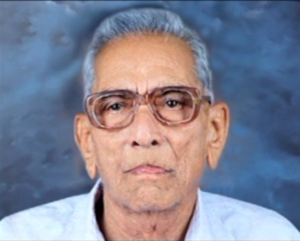CODE OF PROFESSIONAL ETHICS
I. TEACHERS AND THEIR RESPONSIBILITIES :
Anyone who chooses to teach as a profession accepts the responsibility of conducting himself or herself in accordance with the profession's ideal. A teacher is continuously scrutinised by his students and the general public. As a result, every teacher should ensure that his or her precepts and practise are synchronous. The national ideals of education which have already been established and which he or she should aim to instil in students must be his or her own ideals. Teachers must also have a calm, patient, and communicative temperament, as well as an amiable demeanour, to succeed in this career.
Teachers should:
(i) Stick to the community's expectations for responsible behaviour and demeanour;
(ii) Handle their personal affairs in a manner that is appropriate with the profession's dignity;
(iii) Strive for ongoing professional development through study and research;
(iv) Contribute knowledge by participating in professional meetings, seminars, and conferences and expressing a free and candid viewpoint;
(v) Retain active membership in professional organisations and use them to advance education and the profession;
(vi) Conscientiously and diligently carry out their responsibilities in the form of teaching, tutorials, practicals, seminars, and research work;
(vii) Help and assist in carrying out functions related to the college and university's educational responsibilities, such as assisting in the evaluation of admissions applications, advising and counselling students, and assisting in the administration of university and college examinations, including supervision, invigilation, and evaluation.and
(viii) Engage in extracurricular, co-curricular, and extra-curricular activities, such as extension and outreach activities.
II) TEACHERS AND THE STUDENTS:
Teachers should:
(i) Honour students' right to express themselves.
(ii) Treat students fairly and equally regardless of their religion, caste, political, economic, social, or physical characteristics.
(iii) Identify differences in aptitude and capabilities among students and strive to meet their individual needs.
(iv) Motivate students to improve their attainments, develop their personalities, and contribute to community well-being.
(v) Instill in students a scientific mindset, a respect for physical labour, and democratic, patriotism, and peace.
(vi) Be friendly toward the students and do not act vindictively towards any of them for any reason.
(vii) In order to achieve merit, channelise the student’s potential.
(viii) Be available to students outside of class hours and without remuneration or reward to help and guide students.
(ix) Assist students in developing an understanding of our national heritage and national goals.and
(x) Avoid inciting students against other students, colleagues, or administration.
III) TEACHERS AND COLLEAGUES
Teachers should:
(i) Respect other members of the profession as they would like to be treated.
(ii) Address respectfully to other teachers and offer assistance for professional advancement.
(iii) Avoid making unsubstantiated allegations against colleagues to higher authorities.
(iv) Avoid from allowing considerations of caste, creed, religion, race, or sex to interfere with their professional endeavour.
IV) TEACHERS AND AUTHORITIES:
Teachers should:
(i) In accordance with existing rules and procedures, discharge their professional responsibilities and adhere to procedures and methods consistent with their profession in initiating steps through their own institutional bodies and/or professional organisations for the change of any such rule that is detrimental to their professional interest.
(ii) Do not take any other employment or commitment, including private tuitions and coaching classes, that is likely to interfere with their professional interests.
(iii) Participate in the formulation of institutional policies by accepting various offices and fulfilling the responsibilities that such offices may entail.
(iv) Participate in the formulation of policies of other institutions through their organisations and accept offices.
(v) Keeping in mind the interest and dignity of the profession, collaborate with authorities for the betterment of the institutions.
(vi) Adhere to the contract terms.
(vii) Provide and expect adequate notice before changing positions.
(viii) Avoid taking leave except on unavoidable grounds and, as far as possible, with prior notice, keeping in mind their specific responsibility for completing the academic schedule.
V) TEACHERS AND NON-TEACHING STAFF:
(i) Within every educational institution, teachers should consider non-teaching personnel as colleagues and equal partners in a cooperative effort.
(ii) Teachers should assist in the operation of joint staff councils that include both teachers and non-teaching staff.
VI) TEACHERS AND GUARDIANS
Teachers should:
(i) Ensure, through teacher bodies and organisations, that institutions maintain communication with guardians and students, submit performance reports to guardians as needed, and meet with guardians in meetings convened for the purpose of mutual exchange of ideas and for the institution's benefit.
VII. TEACHERS AND SOCIETY
Teachers should:
(i) Education is a public service, recognise it and strive to keep the public informed of educational programmes being provided.
(ii) Strengthen the community's moral and intellectual life and work to improve education in the community.
(iii) Participate in activities that will contribute to the progress of society and thus the country as a whole.
(iv) Fulfill citizenship responsibilities, participate in community activities, and assume public office responsibilities.
(v) Avoid from engaging in, subscribing to, or helping in any manner in activities that foster feelings of animosity or enmity among different communities, faiths, or linguistic groups, and instead actively work for national integration.
CODE OF CONDUCT FOR STUDENT
- Remember that you are a proud citizen of India and are expected to positively contribute to her name and fame.
- Have a sense of belonging and pride in your country, institute and your family.
- Be respectful to your teacher, parents and fellow Students.
- Be punctual and well-disciplined at all times even when nobody is watching you.
- Keep yourselves neat, clean and well turned out at all times.
- Show humility in success, wealth and intelligence.
- Be considerate and helpful towards the weak, poor and the needy.
- Understand and follow all institutional rules and regulations in letter and spirit.
- Protect public property as your own. It is for the benefit of our society.
- Study well, play hard and aspire to be the best in all fields.
- Don't indulge in scholastic dishonesty and cheating in examinations.
- Do not indulge in ragging, dillydallying or making indecent proposals to fellow students.
- Be financial incorruptible to hold your head high in the society.

